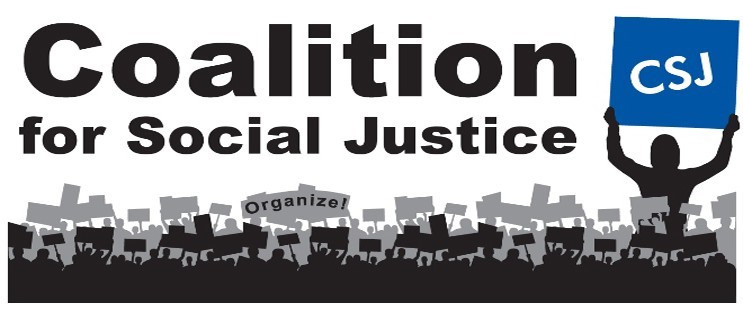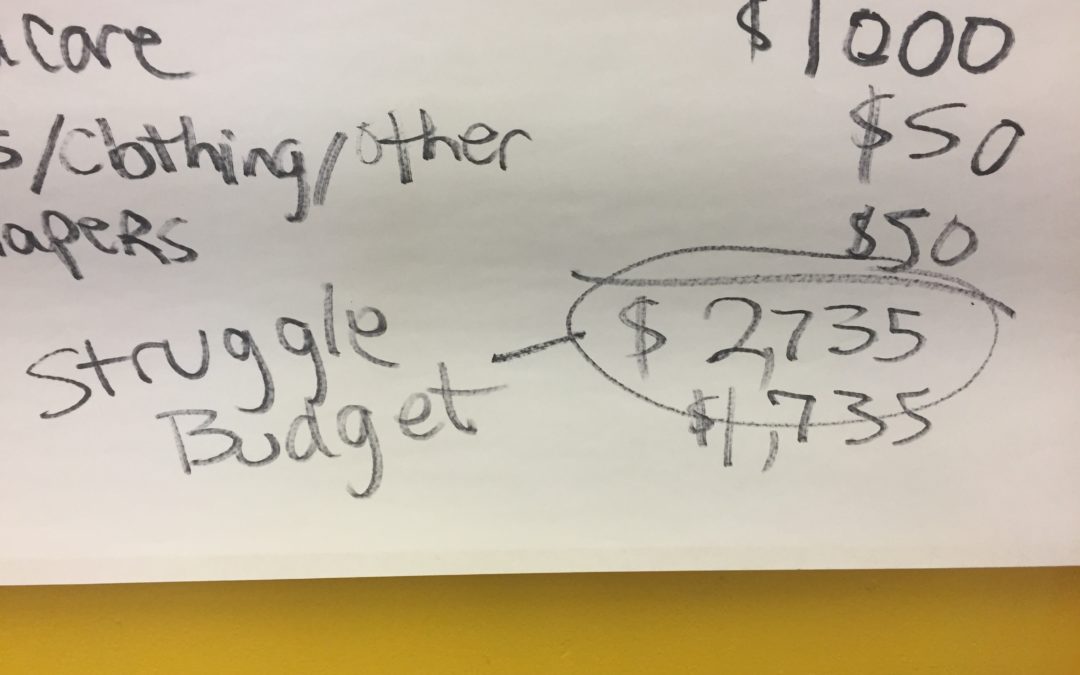This month’s activist meetings in New Bedford and Brockton focused on some themes we may all be familiar with – the struggle budgets of families.
Both had a presentation on CSJ’s Early Education and Care Campaign, outlining the convening of partners from around the state to address the cost of childcare in MA. Childcare expenses is one of many barriers to work for women, and even middle-class families struggle to pay the median cost of $20,125 for infants, $18,586 for toddlers, $14,256 for 4-year-olds to get the early education that they need. In addition, According to a 2020 UC Berkeley report, the poverty rate for early educators in Massachusetts is 15.3%, much higher than for Massachusetts workers in general (8.7%).
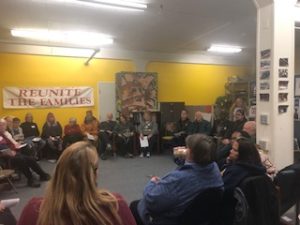 We also learned about how the CSJ’s leadership on the campaign is really taking off, with coalition tables being started in the Fall River/New Bedford/Taunton area, and other parts of the state.
We also learned about how the CSJ’s leadership on the campaign is really taking off, with coalition tables being started in the Fall River/New Bedford/Taunton area, and other parts of the state.
In Brockton, we had guest speaker Debora Harris from Mass Law Reform Institute and the Welfare Coalition present on the current state of the Temporary Assistance for Families with Dependant Children grants in MA, and in New Bedford, a former welfare recipient led a discussion outlining how the TAFDC grant, even with WIC, SNAP, Medicaid, public housing, and other public programs are not enough to keep a family from deep poverty.
As part of the New Bedford meeting, attendees worked together to create a very minimal budget for a family of there. After some VERY 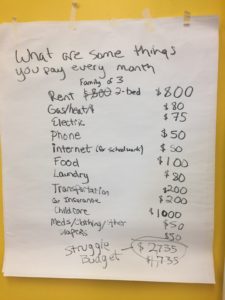 lively debate about the realistic ability of finding a 2-bedroom apartment ANYWHERE in MA and the necessity of internet for school-aged children, group put together a final “struggle budget” of $2,735. We then went on to take out the $1000 for childcare, assuming that the family was able to find a slot, had a voucher, or the children were old enough to be in school. Even with the reduced amount, the group agreed that $1,735 was about right for a person living in New Bedford or Fall River. The attendees were a little shocked to learn how close their estimate was to the $1,778 amount which is the “deep poverty” or 50% of the Federal Poverty Level for a family of 3.
lively debate about the realistic ability of finding a 2-bedroom apartment ANYWHERE in MA and the necessity of internet for school-aged children, group put together a final “struggle budget” of $2,735. We then went on to take out the $1000 for childcare, assuming that the family was able to find a slot, had a voucher, or the children were old enough to be in school. Even with the reduced amount, the group agreed that $1,735 was about right for a person living in New Bedford or Fall River. The attendees were a little shocked to learn how close their estimate was to the $1,778 amount which is the “deep poverty” or 50% of the Federal Poverty Level for a family of 3.
Currently, the cash assistance to families in poverty is just $491 a month to a family of 3. This amount has not been raised in 20 years. Handouts show that, although the grant has not increased, many of the items that must be paid for by the cash assistance have skyrocketed in price beyond regular inflation. Read more here.welfare.idiographic.Increased costs much greater than TAFDC increase (2)
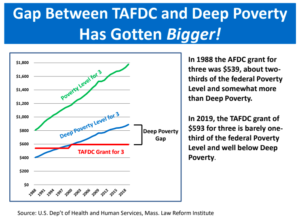 Many of the attendees had stories to tell about their struggles with their own budget, like what happens when a used car breaks down, how child support from non-custodial parents counts against them, or the lack of public transit as an alternative to the car and insurance. Others bemoaned not being able to purchase work clothing when starting a new job, or the required cost of laundry since any apartment that would be $800 for a 2-bedroom is likely to be without laundry facilities on-site.
Many of the attendees had stories to tell about their struggles with their own budget, like what happens when a used car breaks down, how child support from non-custodial parents counts against them, or the lack of public transit as an alternative to the car and insurance. Others bemoaned not being able to purchase work clothing when starting a new job, or the required cost of laundry since any apartment that would be $800 for a 2-bedroom is likely to be without laundry facilities on-site.
Volunteers were then encouraged to get involved by sharing their stories about childcare, joining our Welfare Committee or regional Childcare Table to work on the issues in concert with our partners.
